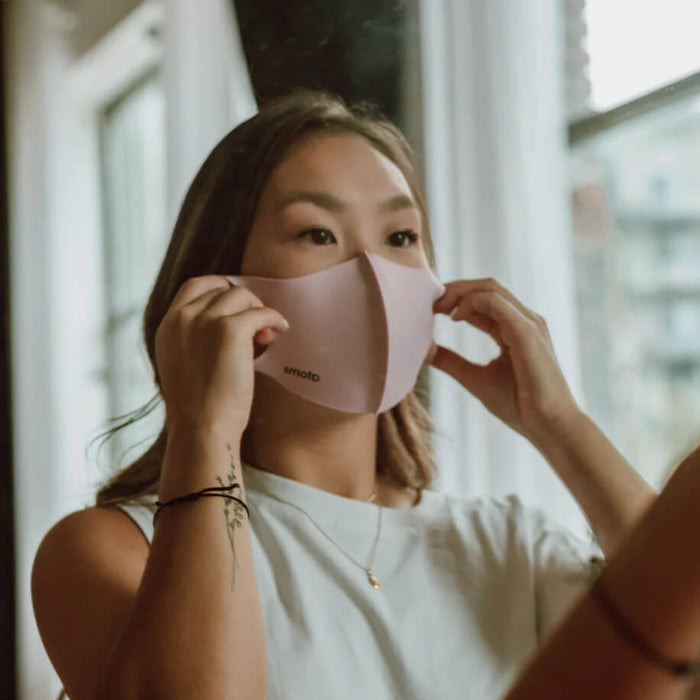What Do You Need To Know About Maskne?

This pandemic has brought with it a shake-up to our daily lives - from travel plans being cancelled (sorry...all plans being cancelled) to daily mask-wearing . One slightly more surprising impact of coronavirus is the increase in cases of ‘maskne’.

So, firstly, what is this ‘maskne’ we keep hearing about?
“Maskne (or mask acne) is a targeted breakout of acne as a result of wearing a face mask, generally for a prolonged period of time.
It’s characterised by uncomfortable irritation and chafing around the mouth, chin, and cheeks. In some cases, the sufferer might experience small spots, similar to those of dermatitis.”
Silly question perhaps, but what causes maskne?
“As the name suggests, maskne is caused by wearing a mask, particularly for long periods of time. We all already have bacteria, natural oils, and dead skin cells on our face. But while usually our skin would have a chance to breathe, wearing a mask exacerbates this environment.
As a result, the mask traps moisture from breathing and natural sweating, increasing the chances of acne developing.
This is further exacerbated by friction. Face masks made from rough fabrics can rub against your face, irritating and chafing the skin, making your acne worse.
Even then, your acne might be worsened further by the type of material your face mask is made out of. Some masks are treated with chemicals which can aggravate the skin, or even a simple scented laundry powder can cause irritation to the face.”
How can I treat this pesky maskne, then?
“Maskne can be irritating and even painful at times, making life quite uncomfortable for sufferers — especially those who need to wear masks for prolonged periods of time. Thankfully, there are a few ways you can treat and manage maskne. One of the best ways to treat maskne is with Duac gel. Duac gel contains benzoyl peroxide and clindamycin, antibacterial and antibiotics respectively which help kill off harmful bacteria on the skin’s surface and break down the top layer of skin. This, in turn, gets rid of dead skin cells which can cause a build-up of acne. Applied directly to the skin, Duac gel reduces the symptoms of mask-related acne significantly.”
Ok, but how long does Duac take to work?
The Independent Pharmacy states that users can start to see effects from between 2-4 weeks, although the best results appear with prolonged use — a course of Duac gel can last up to 12 weeks. “Duac gel isn’t for everyone, and it can cause some side effects, so always speak to your pharmacist before buying.”
So, what else can we be doing to help keep maskne at bay?
“Cleanse your skin properly. As well as simply treating your maskne, you should also take steps to actively prevent it from appearing with a good skincare regimen. Salicylic acid is a great addition to your routine. It is a beta hydroxy acid, and is often used as an effective acne reduction treatment. Beyond its function as an acne treatment, it is also good for preventing build-up of oils and dead skin cells on the face too.
The Nip+Fab salicylic acid skincare range includes a number of moisturisers, masks, night pads, and tinctures that keep your face and skin clear and clean. Used regularly, such products can help create a healthy environment on your face that prevents maskne from taking hold.”
What about masks? (nope, not the lovely pamper sesh kind, the other kind…)
“Definitely consider investing in a good-quality face mask. The typical blue disposable face masks that are so common on the high street might be cheap, but they’re often made from polypropylene, a coarse fabric that can irritate the skin. They also take years to break down and, as such, it’s best to invest in a reusable face mask made out of soft, gentle fabrics. The best face masks are those made out of silk. These are among the softest options on the market, and are significantly more breathable than other masks made out of multiple layers of cotton or polyester.”
